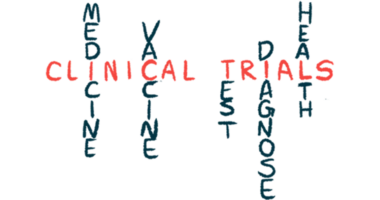One-time hemophilia B gene therapy Beqvez wins OK in Canada
Treatment's approval follows recent OK for gene therapy Hemgenix

Health Canada has approved fidanacogene elaparvovec, formerly known as SPK-9001 and now marketed under the brand name Beqvez, for adults with moderately severe to severe hemophilia B.
Developed by Pfizer, the gene therapy is under review by regulatory agencies in the U.S. and Europe.
“Pfizer has more than 30 years of experience in developing and commercializing therapies for hematological disorders, and a deep understanding of the significant challenges that people living with hemophilia continually face,” Frédéric Lavoie, Canada lead-specialty business unit at Pfizer Canada ULC, said in a company press release. “We are proud to introduce an innovative therapy for people living with hemophilia B in the form of gene therapy.”
Beqvez’s approval, which follows the recent approval of another gene therapy for hemophilia B called Hemgenix (etranacogene dezaparvovec), was embraced by the Canadian Hemophilia Society.
“The Canadian Hemophilia Society (CHS) welcomes the approval of Beqvez, the second gene therapy for hemophilia B, to receive its [regulatory compliance] from Health Canada in recent months,” said Wendy Quinn, CHS President. “Our hope is that gene therapy will be made available to those who are eligible and have made an informed decision to proceed.”
“We are committed to ensuring education and support for our community as gene therapies have the potential to fundamentally transform treatment and improve quality of life for some individuals,” Quinn said. “The CHS will work closely with health authorities in the provinces and territories to ensure that gene therapies for hemophilia B become accessible to eligible patients across Canada as soon as possible.”
How Beqvez works in hemophilia B
Hemophilia B is caused by genetic mutations in the F9 gene that lead to a deficiency in the activity of a clotting protein called factor IX (FIX). As a result, people with the disorder are at risk of having excessive bleeding, both spontaneously and/or after an injury.
The current standard of care consists of regular intravenous (into-the-vein) infusions of either blood-derived or lab-made forms of FIX to control and prevent bleeding episodes.
Beqvez uses a harmless viral vector to deliver a functional version of the F9 gene to liver cells that instructs them to produce an active form of FIX. Administered as a single intravenous infusion, the gene therapy should stimulate sufficient amounts of the clotting protein to prevent excessive bleeding, potentially reducing or eliminating the need for regular FIX infusions.
Health Canada’s approval of Beqvez was based on data from the open-label Phase 3 BENEGENE-2 clinical trial (NCT03861273), which enrolled 45 men, ages 18-65, with moderately severe to severe hemophilia B, defined as FIX activity of 2% or less.
All the participants had received regular FIX infusions for at least six months in a lead-in study (NCT03587116) and tested negative for preexisting antibodies against the viral vector, which could undermine the therapy’s effectiveness.
Top-line data showed a single dose of Beqvez reduced the mean annual bleeding rate by 71% compared with the lead-in period. The rate of bleeding episodes that required treatment dropped by 78% and the annual rate of FIX infusions fell by 92%.
Participants will be followed for up to 15 years, six years in BENEGENE-2 plus nine years in a separate long-term Phase 3 study (NCT05568719).
“Our team at McMaster University is proud to have been a clinical trial site in Canada that studied this therapy,” said Alfonso Iorio, MD, PhD, professor at McMaster University, in Canada. “This new treatment shows potential in reducing the burden of frequent infusions by providing, with a single infusion, a persistent liver production of factor IX, which could help improve the life of those affected.”






